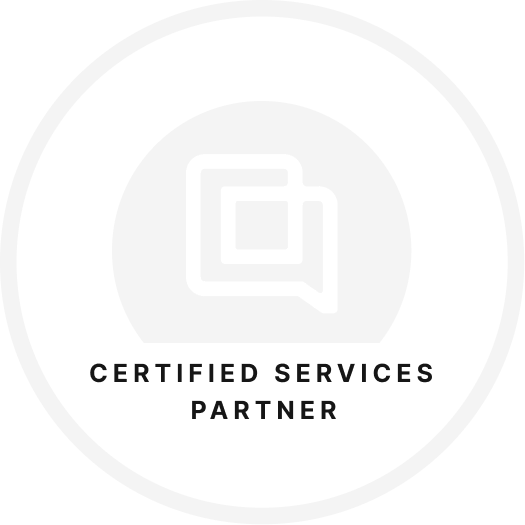Is one of your biggest nightmares losing customers without understanding why they left? Don’t worry, this is totally normal.
But have you taken the time to review your customer success strategy recently? Are you sure you have a 360-degree view of their customer experience? Are you tracking their health and engagement? And can you easily identify if any of them is an at-risk account?
No? Well, it’s not that surprising—44% of companies estimated they lose more than 10% of their annual revenue due to poor quality customer data. To reverse that, you need to empower your customer success team with a tool that can act as a central hub for all the data regarding your customer health.
In this post, we’ll discuss the following:
- why you need a customer success software (if you don’t have one yet)
- the key features you need to look for in a customer success software and questions to ask yourself when choosing
- our ten recommendations of customer success software you can choose from
Why should you invest in customer success software?

Here’s the quick and fast answer: Because you can’t afford to have fragmented customer data—which by the way is already (unfortunately and alarmingly) felt by 53% of consumers.
So what can a dedicated tool for managing customer data and success do for you and your business?
It helps break down those pesky data silos
With the best customer success software, there will be no more hopping between different systems or departments to piece together a complete picture of your customer health data.
All of the valuable information you need is in one place. That means you get to have a comprehensive view of each customer’s journey—from their first touchpoint with your business to their most recent support ticket.
Spot trends and patterns that were previously invisible
A good customer success platform lets you track key metrics, identify trends, protect at-risk accounts, and recognize upsell opportunities. This data-driven system takes the guesswork out of customer success. Instead of relying on hunches, you’ll have concrete customer insights to guide your strategies and tactics. If done correctly, you may even be 7X better at keeping customers.
A CSM can supercharge your team’s efficiency
The logic is simple. When you already have the customer data at your fingertips, your team can spend less time hunting for information and more time focusing on customer interaction. You understand a customer faster with their history, preferences, and potential pain points within reach. And this will naturally allow you to provide faster and more effective support which translates directly into higher customer satisfaction.
You can scale more smoothly
As your business grows, managing customer relationships can become increasingly complex. A customer success management tool helps maintain high-quality customer interactions even as your customer base expands. Thanks to automated workflows that you can set up, no customer falls off your radar.
Prove the ROI of your customer success initiatives better.
Most CSM tools have data and reporting capabilities. You can clearly communicate that your customer loyalty tactics are impacting key business metrics like retention rates, customer lifetime value, customer health, and overall revenue. Not only does this help justify customer success investments, but it also provides valuable insights for continuous improvement.
Top 6 features to consider when choosing a customer success software

Are you looking for a customer success software to change your game? Or maybe you’re looking for a new one. Let’s go over the six key features you should watch out for when you’re on the hunt for the perfect customer success software.
1. 360-degree customer view: Can you easily access a complete picture of each customer’s journey?
Think of this as your all-seeing eye into your customer’s world—their purchase history, support tickets, product usage, and even their interactions with your company across different channels. A customer success software must have this feature because this is the foundation of any effective customer success strategy.
2. Issue tracking: Will you be able to monitor customer issues from start to resolution?
Next, let’s talk about a customer success manager tool’s problem-resolution system. This is the key to keeping customers stick around. A CSM software must be your organized buddy who never forgets a single detail about any customer problem. Every issue—big or small—gets logged, categorized, and tracked from start to finish. You’ll easily know who’s working on what, how long it’s taking, and whether it’s been resolved to the customer’s satisfaction.
3. Customer expansion management: Can the software help you identify upsell and cross-sell opportunities?
Customer success is not just about retention—it’s also about growth. So you’re not just maintaining them, your team must help them flourish and grow. This feature enables you to spot opportunities to upsell or cross-sell. Maximizing their lifetime value is the name of the game.
4. Performance analytics: What kind of data does it offer?
This is where you get to be more like an analyst. Yes, this feature gives the data for monitoring all the vital signs of your customer success efforts like customer health scores, churn rates, and product adoption. Customized dashboards and in-depth reporting of tools for your customer journey success help you spot trends, identify what’s working, and correct errors.
5. Proactive outreach and engagement: Can you engage based on customer behavior and data?
This feature is all about staying one step ahead of your customers’ needs. The best customer success tools can alert you when these happen: a customer’s usage drops, or when they haven’t logged in for a while. Some could even suggest personalized content or product recommendations based on the customer’s behavior.
6. Integration with other tech: Will this software work with other critical tools in your technology ecosystem?
This is a must. Your customer success software should integrate seamlessly with your CRM, support ticketing system, marketing automation platform, and other tools. Good integrations mean less manual data entry, fewer errors, and more streamlined customer service workflows for your customer experience team.
10 best customer success tools we recommend

Before we proceed, did you know that 34% of customer success teams find it hard to grow because of the lack of tools? We think this statistic underscores the critical role that the right customer success software plays in your customer success efforts.
So, to help you choose, we’ve compiled a list of our 10 recommended tools that can supercharge your customer success initiatives:
#1: Gorgias (best for eCommerce customer support system)
Gorgias is primarily known as a customer support helpdesk for eCommerce businesses. But it can also be used as a customer success tool due to its comprehensive suite of features designed to enhance customer satisfaction and streamline communication. It integrates with popular eCommerce platforms like Shopify, Magento, and BigCommerce, so you can manage customer support directly from your store’s dashboard.
Pros:
- specifically designed for eCommerce businesses
- multi-channel integration (email, live chat, SMS, social media) for centralizing all customer interactions
- automation function helps reduce wait/response times
Cons:
- pricey for startups
Pricing:
- Offers a 7-day free trial period. But its paid plan starts at $10/month.
#2: Re:amaze (best for eCommerce platforms looking for an all-in-one customer communication solution)
Re:amaze is a comprehensive helpdesk and customer messaging platform well-suited for customer success purposes. It offers easy-to-configure chatbots without requiring coding skills and built-in self-service support like FAQs. This lets CS teams to better assist your customers. Plus, integration with eCommerce platforms allows smart and quick ticket resolution.
Pros:
- offers omnichannel communication capabilities
- can create a custom chatbot using a visual builder
- built-in and customizable help center and FAQ articles
Cons:
- reporting is a bit complex to understand
Pricing:
- Comes with a 14-day free trial period. Basic plan starts at $29 per month
#3: Kustomer (best for businesses that need true omnichannel customer support)
Kustomer is an AI-powered customer success management software that unifies customer data (interactions and information) for exceptional customer experiences. Kustomer’s AI-powered tools help your service agents personalize their support and surface relevant customer information so your team can resolve issues faster and more effectively.
Pros:
- consolidate data from multiple sources into a single, unified customer profile
- omnichannel customer service, where customers can seamlessly communicate across multiple channels like phone, email, chat, and social media
- integrates with over 60 apps to unify customer data from multiple sources
Cons:
- the learning curve can be difficult for new users
Pricing:
- Kustomer does not have a free version and does not offer a free trial. The paid version starts at $89/month.
#4: Zendesk (best for businesses that need scalable service offerings)
Zendesk is a customizable platform that allows businesses to tailor their support processes to their specific needs. Whenever you have an increased ticket volume, you can easily scale your support services with AI optimizing and streamlining your workflows. It also offers a variety of tools for ticket management, knowledge base creation, community forums, and customer satisfaction surveys.
Pros:
- handle customer service at a larger scale using AI
- provides comprehensive analytics and reporting
- matches your business processes and branding
Cons:
- some advanced features require significant setup effort
Pricing:
- Provides a 14-day free trial period. Basic plans start at $55 per agent per month billed annually for the Support Team plan
#5: HubSpot (best for companies already using HubSpot)
HubSpot Service Hub is one of the best customer success platforms for a consolidated view of all customer interactions in one context. It integrates seamlessly with HubSpot’s marketing and sales tools so it has the tools to manage and nurture customer relationships from initial contact through long-term retention.
Pros:
- All-in-one service platform perfectly integrates with HubSpot’s marketing and sales tools, providing a unified view of the customer.
- offers features for managing customer support tickets, live chat, and knowledge base creation
- includes tools for surveys and feedback collection
Cons:
- customizability is limited
Pricing:
- The free tier includes basic customer service features. The Starter plan costs $20/month per user (or $15/month per user if paid annually).
#6: Gladly (best for businesses wanting to deliver personal service to customers)
Gladly is an AI customer success manager software for providing a seamless and personalized customer service experience. This solution replaces traditional ticketing systems with a conversation-based approach personalized customer interactions that focuses on the customer’s entire journey rather than individual interactions. Gladly’s unique “People Match” feature matches customers with agents based on their preferences and history.
Pros:
- conversation-based approach when building relationships with customers
- lets you initiate conversations with customers based on specific triggers or events
- combines the strengths of AI and human agents, which can be beneficial for businesses looking to optimize their customer service operations.
Cons:
- search function is sometimes hard to use
Pricing:
- Does not offer a free trial. The Hero Package starts at $180/user/month.
#7: ChurnZero (best for identifying at-risk customers)
ChurnZero is among the best customer success software that empowers businesses to reduce churn and drive revenue growth. It offers a suite of tools for customer onboarding, engagement, and retention. What makes it unique is it can identify at-risk customers early on and provide actionable insights to prevent churn.
Pros:
- identifies at-risk customers by customer health scoring based on their engagement and behavior
- offers advanced reporting, predictive analytics, and renewal forecasting
- allows users to create and automate customer success workflows based on specific triggers or events
Cons:
- quite difficult to use
Pricing:
- No pricing information on its website.
#8: Totango (best for companies new to customer success)
Totango is also one of the best customer success platforms to have full visibility into your customer data. It’s widely praised by customers for its ease of use and even recognized as a leader in the customer success software market by industry analysts. Totango’s SuccessBLOCs come pre-built with industry best practices and expert knowledge so CS teams can quickly get started.
Pros:
- with pre-built customer success program templates
- has a pretty clean UI and user user-friendly
- provides a comprehensive profile to give teams full visibility into each customer’s health, engagement, and potential
Cons:
- extensive features and customization options may require dedicated resources
Pricing:
- Receive a custom quote based on your requirements by requesting a demo.
#9: Gainsight Customer Success (best for AI-powered customer insights)
With Gainsight, you can see an account from a holistic perspective. It leverages AI and machine learning to automatically calculate customer health scores and use it to health predict churn risk and prioritize proactive interventions to improve customer retention and improve customer satisfaction too. It equips customer success teams with robust analytics, automation, and voice-of-customer tools.
Pros:
- AI-driven health scores and churn prediction
- 360-degree view to find out everything about your customers
- has the tools needed to manage performance and drive customer outcomes
Cons:
- not user-friendly to create a custom dashboard
Pricing:
- Ask for a demo and get a customized quote.
#10: Intercom (best for companies managing multiple channels for customer relations, marketing, and sales)
Intercom is a customer success software solution used to ensure that customers achieve what is expected of them. It’s a comprehensive customer communication platform and its greatest strength is the ability to facilitate seamless cross-channel communication (including in-app chat, email, and social media). With the platform, customer communications teams can trigger automated messages based on user behavior or events, enabling proactive assistance before problems escalate.
Pros:
- supports diverse channels like live chat, email, in-app messaging, and push notifications
- trigger targeted messages based on user behavior
- has integrated help center and knowledge base
Cons:
- many features require additional charges
Pricing:
- Free trial for 14 days. Essential plan starts at $39.00 per seat/month.
So, which customer success software should you get?

If you’ve recognized the need for a customer success team, you’re already committed to providing superior customer service. Choosing the right customer success software is the next step in empowering your team to deliver exceptional results.
Remember, the “right” customer success software option is the one that best addresses your specific needs. Take your time to research. Or just refer to our 10 recommended of the best customer success software above. For a 100% dedicated customer service team who can easily adapt to your technology, book a call to LTVplus. Please let us know how our managed customer service team can assist you.




